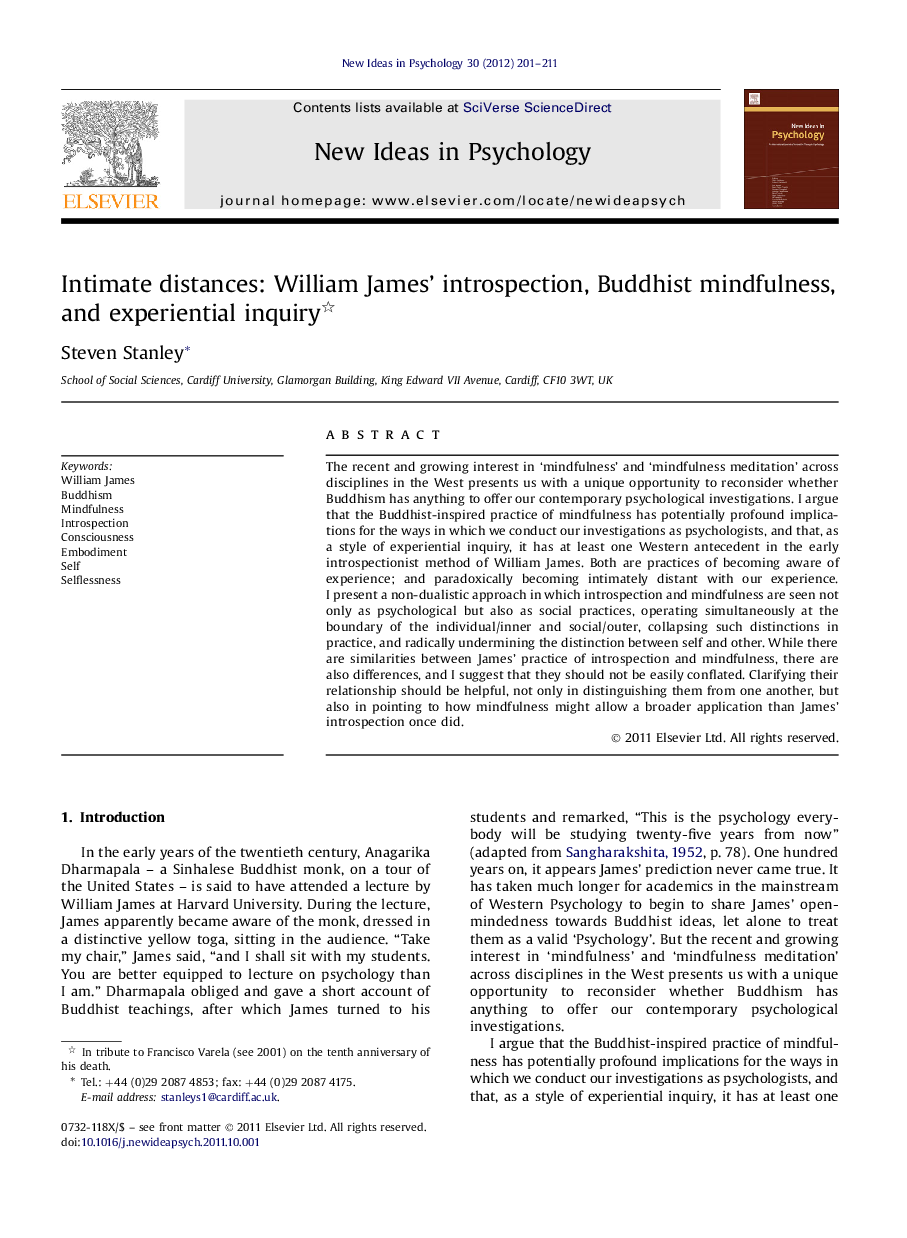| Article ID | Journal | Published Year | Pages | File Type |
|---|---|---|---|---|
| 331546 | New Ideas in Psychology | 2012 | 11 Pages |
The recent and growing interest in ‘mindfulness’ and ‘mindfulness meditation’ across disciplines in the West presents us with a unique opportunity to reconsider whether Buddhism has anything to offer our contemporary psychological investigations. I argue that the Buddhist-inspired practice of mindfulness has potentially profound implications for the ways in which we conduct our investigations as psychologists, and that, as a style of experiential inquiry, it has at least one Western antecedent in the early introspectionist method of William James. Both are practices of becoming aware of experience; and paradoxically becoming intimately distant with our experience. I present a non-dualistic approach in which introspection and mindfulness are seen not only as psychological but also as social practices, operating simultaneously at the boundary of the individual/inner and social/outer, collapsing such distinctions in practice, and radically undermining the distinction between self and other. While there are similarities between James’ practice of introspection and mindfulness, there are also differences, and I suggest that they should not be easily conflated. Clarifying their relationship should be helpful, not only in distinguishing them from one another, but also in pointing to how mindfulness might allow a broader application than James’ introspection once did.
